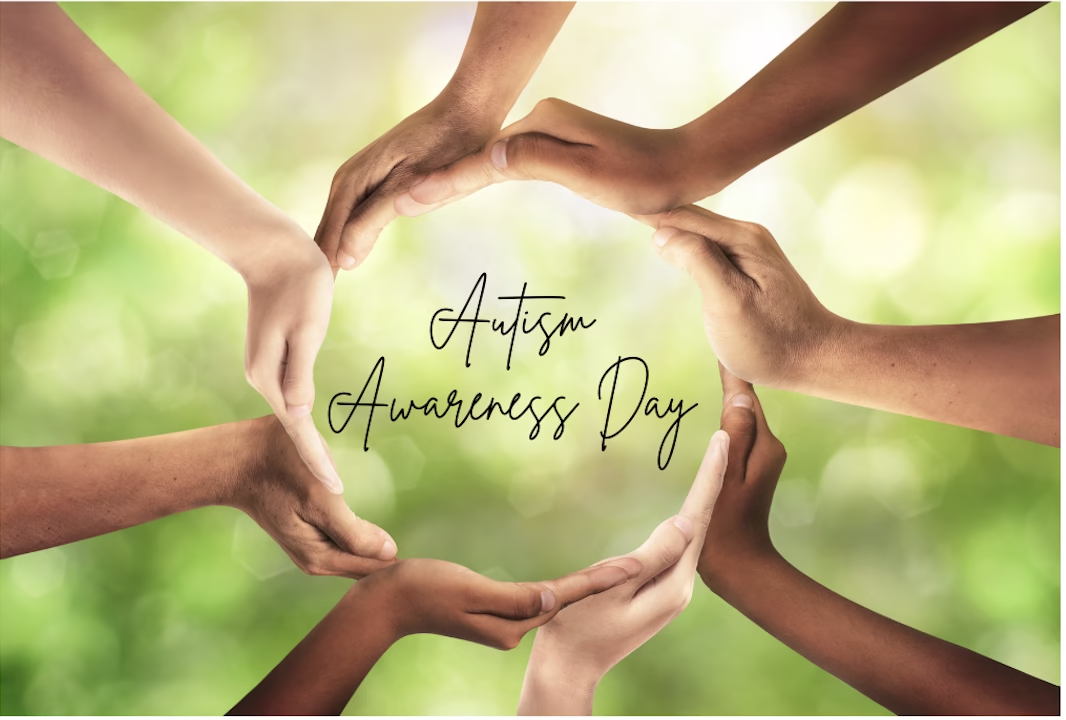World Autism Awareness Day: Understanding and Embracing Neurodiversity

Every year on April 2nd, the world unites to observe World Autism Awareness Day (WAAD), a global initiative dedicated to raising awareness about autism and promoting the rights of individuals on the autism spectrum. Established by the United Nations in 2007, this day serves as a reminder of the need for greater inclusion, understanding, and support for autistic individuals across all aspects of life.
In this blog, we will explore the significance of World Autism Awareness Day, the challenges faced by individuals with autism, the importance of acceptance, and how societies can create a more inclusive environment.
Understanding Autism Spectrum Disorder (ASD)
Autism Spectrum Disorder (ASD) is a neurodevelopmental condition that affects communication, social interaction, and behaviour. It is called a “spectrum” because individuals experience autism in varying ways—some may have significant challenges, while others may excel in specific areas. Common characteristics of autism include:
- Differences in Social Communication – Difficulty understanding social cues, maintaining eye contact, or engaging in conversations.
- Repetitive Behaviours and Interests – Engaging in repetitive actions, having intense focus on specific topics, or preferring routine.
- Sensory Sensitivities – Heightened or diminished sensitivity to sounds, lights, textures, or smells.
Autism is not an illness or a disease—it is simply a different way of experiencing the world. With the right support, autistic individuals can lead fulfilling lives and make valuable contributions to society.
The History and Significance of World Autism Awareness Day
World Autism Awareness Day was officially established by the United Nations General Assembly on December 18, 2007, and was first observed on April 2, 2008. The UN recognised the need to highlight autism as a growing global concern and to advocate for the rights and well-being of autistic individuals.
The day is significant because it:
- Encourages global discussions on the challenges and achievements of autistic individuals.
- Promotes early diagnosis and intervention, which can significantly improve quality of life.
- Supports efforts toward inclusive education and employment opportunities.
- Helps combat the stigma and misinformation surrounding autism.
Challenges Faced by Individuals with Autism
Despite increasing awareness, autistic individuals still face numerous challenges in their daily lives. Some of these include:
Stigma and Misconceptions
Many people still believe in myths about autism, such as the idea that autistic individuals lack empathy or that vaccines cause autism (a claim that has been widely debunked by scientific research). This misinformation contributes to discrimination and exclusion.
Lack of Access to Education and Employment
Many children with autism struggle to access quality education due to a lack of inclusive teaching methods. Similarly, autistic adults face high unemployment rates due to misunderstandings about their capabilities and needs.
Mental Health Challenges
Autistic individuals are at a higher risk of mental health issues such as anxiety, depression, and stress due to societal pressures, misunderstandings, and difficulties in communication.
Limited Healthcare and Support Services
In many countries, there is limited access to specialised healthcare services and therapies, making it difficult for autistic individuals to receive proper diagnosis and support.
How Can We Support Autistic Individuals?
Promoting Acceptance Over Awareness
While raising awareness is important, moving towards acceptance and inclusion is the key. Autism is not something that needs to be “cured”—instead, societies should focus on making the world more accessible for autistic individuals.
Inclusive Education
Schools should adopt inclusive learning methods that cater to different learning styles, such as visual aids, flexible teaching strategies, and sensory-friendly environments.
Workplace Inclusion
Companies should embrace neurodiversity in the workplace by offering flexible work arrangements, clear communication strategies, and training for staff on how to work with autistic colleagues.
Accessible Healthcare
Governments and healthcare providers should ensure that affordable, high-quality diagnostic and therapeutic services are available to all autistic individuals.
Creating Sensory-Friendly Spaces
Public spaces, including shopping malls, airports, and schools, can become more autism-friendly by reducing bright lights, loud noises, and overwhelming environments.
Listening to the Autistic Community
Autistic individuals should be at the forefront of discussions about autism. Rather than speaking on their behalf, we should listen to their experiences and perspectives to create policies and initiatives that truly meet their needs.
How to Get Involved in World Autism Awareness Day
There are several ways you can participate in WAAD and contribute to the movement:
- Wear Blue – Many people wear blue clothing to show solidarity with the autism community.
- Support Autism Organisations – Donate to or volunteer with groups that provide services for autistic individuals.
- Attend Events and Webinars – Participate in educational seminars, panel discussions, and online events focused on autism.
- Engage on Social Media – Use hashtags like #WorldAutismDay, #AutismAcceptance, and #Neurodiversity to spread awareness.
- Educate Yourself and Others – Read books, watch documentaries, and follow autistic voices to gain a deeper understanding of autism
World Autism Awareness Day is a powerful reminder that autism is a natural variation of the human experience and that every individual, regardless of their neurological differences, deserves respect, opportunities, and inclusion. While progress has been made in promoting awareness, there is still much work to be done in achieving true acceptance and equal rights for autistic individuals worldwide.
By embracing neurodiversity, advocating for supportive policies, and fostering inclusive environments, we can ensure that autistic individuals thrive and contribute meaningfully to society.
Let’s move beyond awareness and work towards a world that celebrates and supports autistic individuals every day, not just on April 2nd.